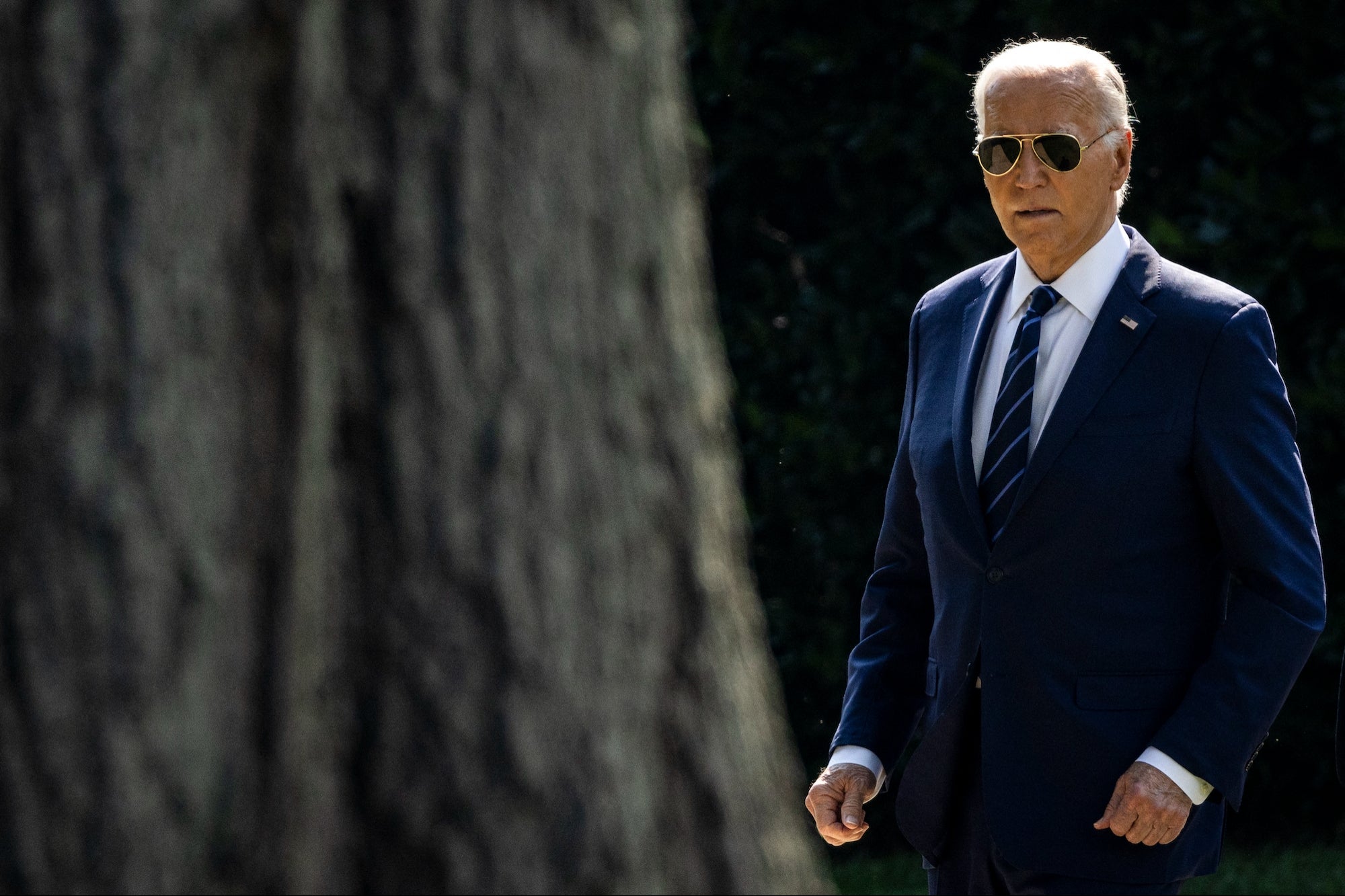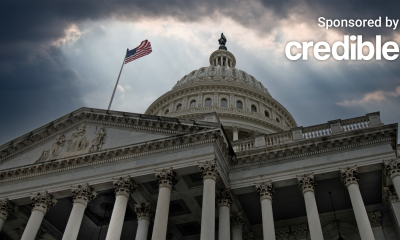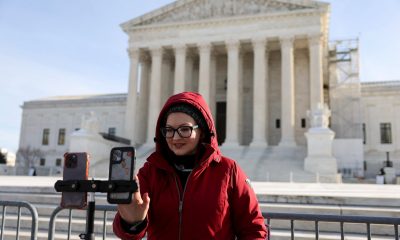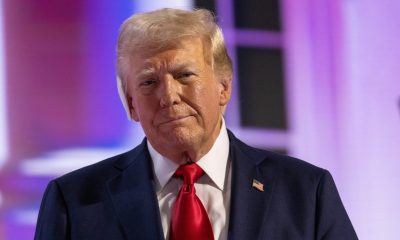Side Hustles
What’s Next for Biden? 7 Lessons From Former Presidents

With his historic decision to drop out of the 2024 race, Joe Biden is now in the position of the few who have come before him — on a search to find meaning and purpose when, like it or not, their time behind the desk of the most powerful office in the world is over. “I’ve decided the best way forward is to pass the torch to a new generation,” he said in his first address to the nation since dropping out of the race.
So now the big question for him: What comes next?
In his new book Life After Power, New York Times bestselling author Jared Cohen explores that question and how it was answered by those who previously held the most unique job in the world: President of the United States.
Cohen says he was inspired to research and write this new book after spending a year and a half traveling the world with Eric Schmidt, the former CEO of Google. “He was CEO of Google for 14 years ago and I think it’s the least interesting thing about him because the things that he opines on today are at this nexus of technology, geopolitics, and business,” Cohen told me. “So I started to look at the most dramatic retirement in the world, which is from the presidency of the United States, and wondered if there’s anything we can learn from these seemingly unrelatable, stratospheric people when they come back down to earth?”
Related: Sage Business Advice From America’s Founding Fathers
Focusing on seven presidents who followed very different paths after their terms ended, Cohen found valuable lessons and cautionary tales that leaders in all industries can learn from as they contemplate the next stages of their professional and personal lives.
The Lifelong Founder: Thomas Jefferson
The lesson: Purpose can lead to longevity.
“Jefferson always had the idea to build a great arts and sciences university in America. He always had this view that we needed a different kind of institution for the next generation. Every business founder I’ve ever met has some reservoir of ideas, but there’s always that Big Idea. And this was Jefferson’s, and I believe his longevity — he lived to be 82 — had a lot to do with wanting to do this. He finally opened the doors of the University of Virginia in 1825 and it was what you’d call a bad launch. A bunch of students wearing masks rioted and chanted ‘Down with European professors!’ as they threw bags of urine and vandalized the university that he personally designed. So he calls the students before a disciplinary committee — which is him, James Madison, and James Monroe. A very intimidating committee to say the least! The students break down and confess their crimes and the school goes on to be one of the most prestigious in the country. So there are a few lessons from Jefferson: one is that it doesn’t get any easier as you get older, and another is that this need to build, this need to found his dream project led to his longevity.”
The Second Act: John Quincy Adams
The lesson: In a lower station, you can find a much higher calling.
“There’s an assumption that people who accomplished a great goal have a short list of things that they’ve always wanted to do to pick from. Well, John Quincy Adams had no idea what he wanted to do next. His first act was architected for him by his name and his parents — he was supposed to be a great president. However, his presidency was a political stillborn because of a corrupt bargain between him and Henry Clay. And so when he was defeated for re-election in 1828, he didn’t know what to do. And so after a couple of years of feeling sorry for himself, trying to become a tree farmer and failing to write a memoir about his father, he goes back to politics and gets elected to the House of Representatives. There he begins reading petitions from voters — some of which abolitionists. And as he read them, there was a roaring reaction from the Slaveocracy in the House wanting to silence the petitioners. Adams realized that they were violating a core American principle that Americans have the right to petition. This fueled him. He served nine terms fighting for the right to free speech which evolved into him mainstreaming what at the time was seen as a fringe and radical abolitionist movement. The lesson here is in a much lower station, he found a much higher calling — and it was a calling that found him rather than him searching for it. He achieved something in the House of Representatives that he never achieved as president of the United States, which is, that he became popular.”
The Comeback: Grover Cleveland
The lesson: Getting back what you once had doesn’t necessarily make you happier.
“People look at Steve Jobs and they look at Michael Jordan, who are two of the most successful comebacks stories, but Grover Cleveland’s comeback is a cautionary tale. It shows us that getting back what you once had doesn’t necessarily make you happier. In fact, it’s likely to make you unhappier because circumstances change. He had entered the White House as a bachelor, got married while president, and then for his re-election, he won the popular vote but lost the Electoral College because he stood on principle against the high tariff. All he wanted was just to retire with his beautiful wife and have children and fish and enjoy the rest of his life. But he was drawn back out of a sense of duty to solve the country’s problems and was reelected for a second term and left having lost the one thing that he once had: popularity. The moment he became president, three things that were out of his control landed on his desk: 1. A bunch of opportunistic American settlers decided to dethrone Hawaiian Queen Liliuokalani, and de facto annex the islands. 2. The Panic of 1893 was the worst economic depression of the century. 3. He feels a bump on the roof of his mouth and realizes he may have terminal cancer. He had to hide the cancer to prevent further panic, which went against every principle that he had about honesty. So when he leaves office, he spends the rest of his life miserable and depressed. So for anybody who wants to come back and do what they did before, I think it is really important to understand that it is almost never as glorious the second time around.
Related: 7 Memorable Quotes from George H.W. Bush
The Dream Deferred: William Howard Taft
The lesson: Missed opportunities aren’t lost forever.
“William Howard Taft was a man who revered the courts and dreamed of being on the Supreme Court. But his wife and his brothers and Theodore Roosevelt wanted him to be president. By most accounts, Taft hated being president and it made him miserable. He served one term which ended in 1913. But his passion for law never waivered and in 1921, President Warren Harding nominated Taft, at the age of 63, to be Chief Justice of the Supreme Court. So I would say that the lesson here is that you shouldn’t give up on a dream when things don’t align. View it as having deferred a dream, where with a little bit of luck, you may get it. Taft says the happiest years of his life were spent serving as Chief Justice of the Supreme Court.”
The Recovery: Herbert Hoover
The lesson: Your legacy can be recovered once you stop focusing on it.
“Before his presidency, Hoover was one of the most revered men in the world. He was an orphan who became a self-made millionaire and was known as the great humanitarian who fed the world after World War I. When the Great Depression hit, it didn’t just kill the economy, it killed Hoover’s platform and reputation. And by the time he left office, he was viewed as a capitalist pig. And he began a long 32-year-long journey of recovery where he contemplates getting back into politics but knows he has no shot in the era of FDR. But then when WWII was ending, Harry Truman resurrected Hoover because the world was once again facing starvation, and he believed Hoover was the only one who knew how to feed the world. So he once again achieved the status of a great executive and humanitarian. In his final act of service, Joe Kennedy, JFK’s father, called on him after the 1960 election to reconcile Richard Nixon and JFK to show American unity since we were in the midst of the Cold War. So once Hoover stopped focusing on recovering his name and concentrated on what he was good at, he recovered his name in his lifetime. He kept his mind super busy and wrote almost 10 books in his last decade of life. He died a fulfilled person, serving the world, serving the country, and serving his mind.”
Related: 10 Barack Obama Quotes on Hard Work and Success
The Former: Jimmy Carter
The lesson: Unshackled from the negative aspects of a job, you can concentrate on those things that you truly care about — and are good at.
“Modern presidents tend to build family offices and foundations and so forth, which is very much the Jimmy Carter model. They create infrastructure around them so that once they can shed themselves of all the things that they didn’t like doing in the job of president, they can double down on all the things that they liked doing. Carter was principled about a lot of things, but in some respects, politics got in the way because he wasn’t a very good politician. And so unshackled from the office, he created a post-presidency with an administration that allowed him to focus on causes like global health and election monitoring and conflict resolution.”
Related: 5 Marketing Lessons Learned From Donald Trump
George W. Bush
The lesson: Don’t look back.
“When I looked at the active living presidents, there is only one whose popularity had doubled — or more than doubled — and that’s George W. Bush. And he’s the only president of the United States, of the 45 men who served 46 times, who’s managed to completely separate himself from the position. I’ve sat down with him for several long-ranging interviews. He’s not introspective about his presidency, he doesn’t think about it, much to the frustration of his critics. He describes legacy as a dirty word, a selfish word. He said to me, “I read three books about George Washington last year. They’re still writing books about the other George. By the time they get around to me, I’m going to be long dead, so why would I waste my time on this?’ He’s sort of amused by the fact that he watches all these other people exert enormous amounts of energy and resources into trying to shape their legacy. And it’s almost always counterproductive. Because when they build themselves up, they become highly susceptible to a takedown. But just because he separates from his previous job and his previous chapter, doesn’t mean he separates from the things that he is principled about. He has an unmatched reverence for the Washington principle (the concept of former presidents not criticizing their successors), and he cares deeply about veterans and the American immigration story. And he discovered a post-presidential voice through painting that allows him to advance those causes in an apolitical way. So I think that lesson is that you need to develop a voice as a CEO or a founder, and once you’re done with it, you need to kind of discover a new voice.”
Read the full article here

-

 Side Hustles7 days ago
Side Hustles7 days agoWhy the Best CEOs Think Like Anthropologists
-

 Side Hustles5 days ago
Side Hustles5 days agoThis User-Friendly H&R Block Software Package is Only $40, While Supplies Last
-

 Investing5 days ago
Investing5 days agoTikTok faces US ban deadline as users brace for fallout By Reuters
-

 Passive Income4 days ago
Passive Income4 days agoTrain for a New Tech Career in 2025 With This $25 Course Bundle
-

 Personal Finance6 days ago
Personal Finance6 days agoDecember inflation clouds Fed's outlook on interest rate cuts
-

 Side Hustles6 days ago
Side Hustles6 days agoSupreme Court TikTok Ban: What to Know, January 19 Deadline
-

 Personal Finance7 days ago
Personal Finance7 days agoCalifornia's homeowners insurance industry faces rough road ahead as wildfires continue
-

 Passive Income6 days ago
Passive Income6 days agoUse These ChatGPT Prompts to Boost Your Amazon Sales


















